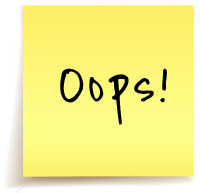In a nutshell: How children learn to read
As parents it’s easy to become overwhelmed by all the advice we are offered on how best to help our children learn to read! It seems like everyone is telling us what to do. But, often what we really need to know is how children learn to read. Here, in a nutshell, are the most important things you need to know about this process.
The stages children go through in learning to read more or less follow the same sequence for all children, no matter what their age – it’s just that some children move through one stage faster than another.
When children first try reading, they often just turn the pages of a storybook as they tell their own story. This ‘pretend reading’ is an important step - it shows that they understand how books work.
Next, they’ll use their memory of a story and its pictures to help them retell it as they turn the pages. Sometimes, they also say some of the actual words of the story and/or point to the words as they ‘read’. These things show they understand that the words and the pictures work together to tell the story.
Then children often will point to words in a book and ask, ‘What does this say?’. This shows that they understand that the words in a book stay the same every time you read them. They also have learnt that the squiggles on page (‘letters’ and ‘words’) are symbols that we interpret as we read. This is an essential step to learning to read – it means that they ‘get’ how reading works. But, they have to arrive at this understanding through their own experiences with books and of being read to. It is not something we can teach by telling.
And then, there is that magical moment when children read the actual words on the page! Some children learn to do this all by themselves while others wait until they receive formal reading instruction in Grade 1. It really doesn’t matter when it happens; it just matters that it happens! And, you can help and encourage your children on their reading journeys by reading aloud to them. If you do this and watch closely, you’ll notice how they are developing as readers.
As parents it’s easy to become overwhelmed by all the advice we are offered on how best to help our children learn to read! It seems like everyone is telling us what to do. But, often what we really need to know is how children learn to read. Here, in a nutshell, are the most important things you need to know about this process.
The stages children go through in learning to read more or less follow the same sequence for all children, no matter what their age – it’s just that some children move through one stage faster than another.
When children first try reading, they often just turn the pages of a storybook as they tell their own story. This ‘pretend reading’ is an important step - it shows that they understand how books work.
Next, they’ll use their memory of a story and its pictures to help them retell it as they turn the pages. Sometimes, they also say some of the actual words of the story and/or point to the words as they ‘read’. These things show they understand that the words and the pictures work together to tell the story.
Then children often will point to words in a book and ask, ‘What does this say?’. This shows that they understand that the words in a book stay the same every time you read them. They also have learnt that the squiggles on page (‘letters’ and ‘words’) are symbols that we interpret as we read. This is an essential step to learning to read – it means that they ‘get’ how reading works. But, they have to arrive at this understanding through their own experiences with books and of being read to. It is not something we can teach by telling.
And then, there is that magical moment when children read the actual words on the page! Some children learn to do this all by themselves while others wait until they receive formal reading instruction in Grade 1. It really doesn’t matter when it happens; it just matters that it happens! And, you can help and encourage your children on their reading journeys by reading aloud to them. If you do this and watch closely, you’ll notice how they are developing as readers.


 Oops! We can’t find the article you are looking for. Please try a different Subject, Grade or Title.
Oops! We can’t find the article you are looking for. Please try a different Subject, Grade or Title.